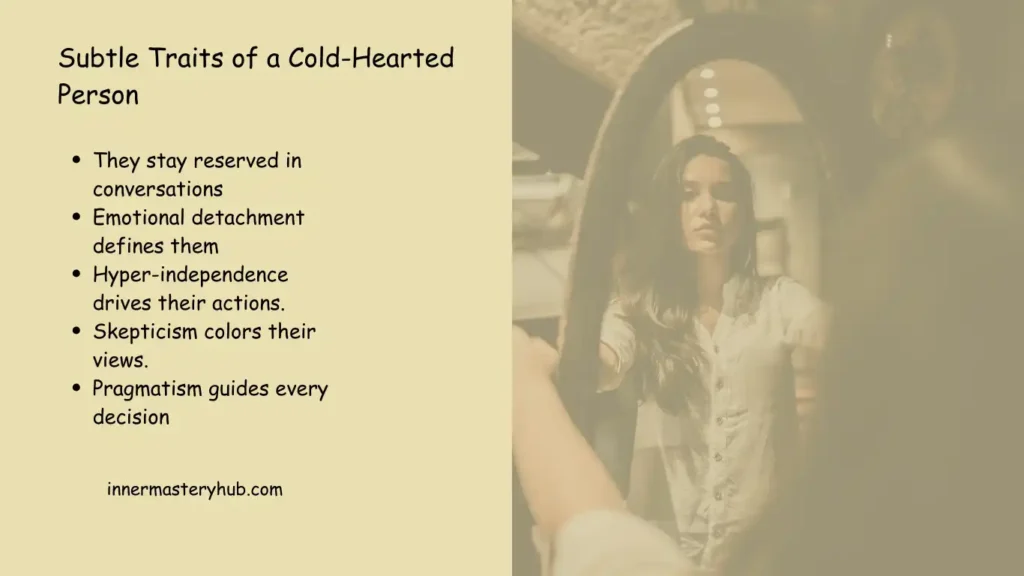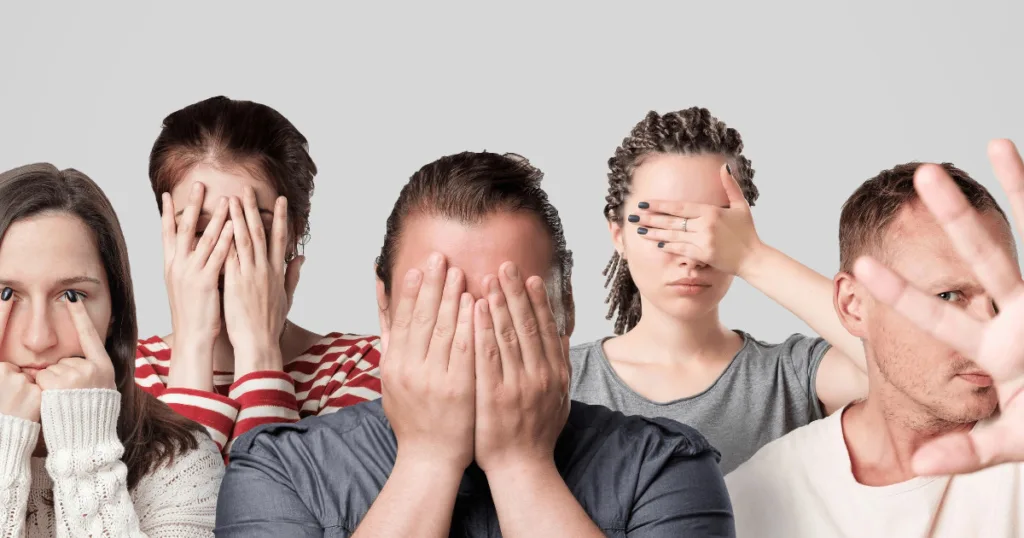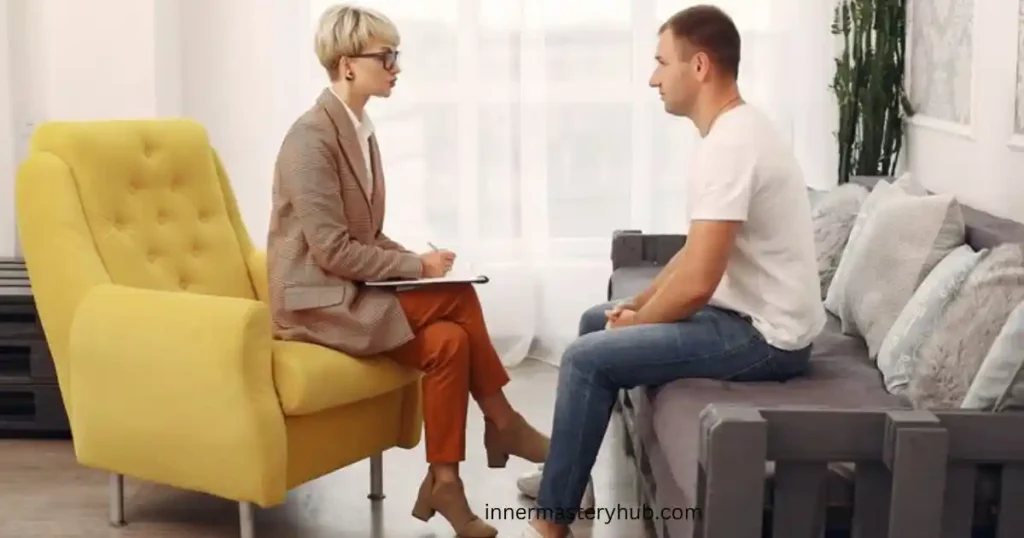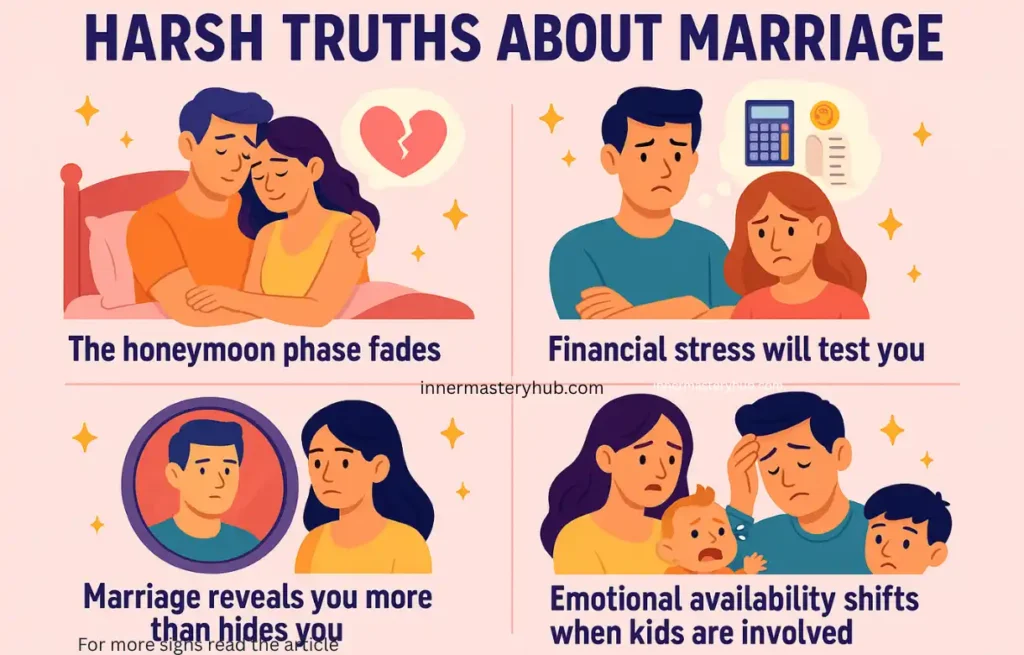Emotional Dissonance in Relationships: 12 Expert Signs to Spot it
Emotional dissonance in relationships
Emotional dissonance in relationships happens when your feelings don’t match your actions and what you express. It creates inner tension, confusion, and frustration. You feel forced to hide emotions or act differently than you think, which can harm connection and trust. Recognising and communicating your true feelings helps reduce dissonance and build healthier bonds.
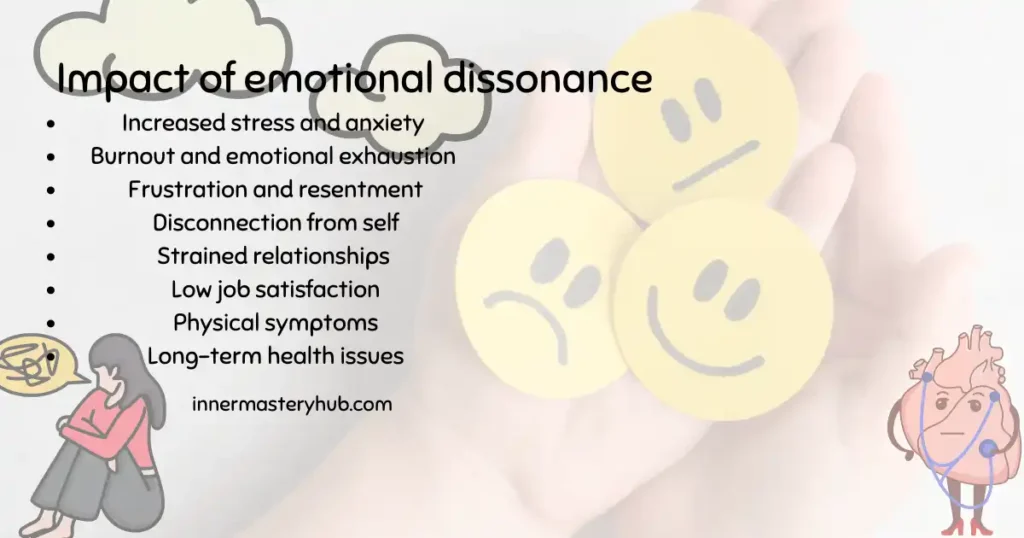
The cognitive dissonance theory applies when new information contradicts your preconceived concepts, attitudes, or beliefs. You may suffer emotional dissonance, but did you know? Cognitive dissonance is the discomfort caused by holding competing ideas, whereas emotional dissonance is the tension between expressed and genuine feelings.
This includes saying “I’m fine” when you’re not, expressing affection when it’s waning, and smiling through a stressful workplace. Minor things can accumulate and strain your relationships, mental well-being, and physical health. Lack of sincerity, discontent, and exhaustion sometimes come from emotional dissonance.
Conflicting emotions hurt your personal and professional life. When you can’t express your true feelings, you feel disconnected from yourself and suffer lifelong emotional suffering. Addressing emotional dissonance may lead to more genuine emotions and healthier relationships.
Why do we feel Emotional Dissonance in Relationships?
Emotional dissonance happens when your internal and external emotions differ. Most often, this is caused by pressure to act a certain way despite your feelings. For instance, you may have to stay positive at work even when upset or frustrated. Trying to hide your emotions in relationships can help you avoid conflict.
We may fake feelings to fit
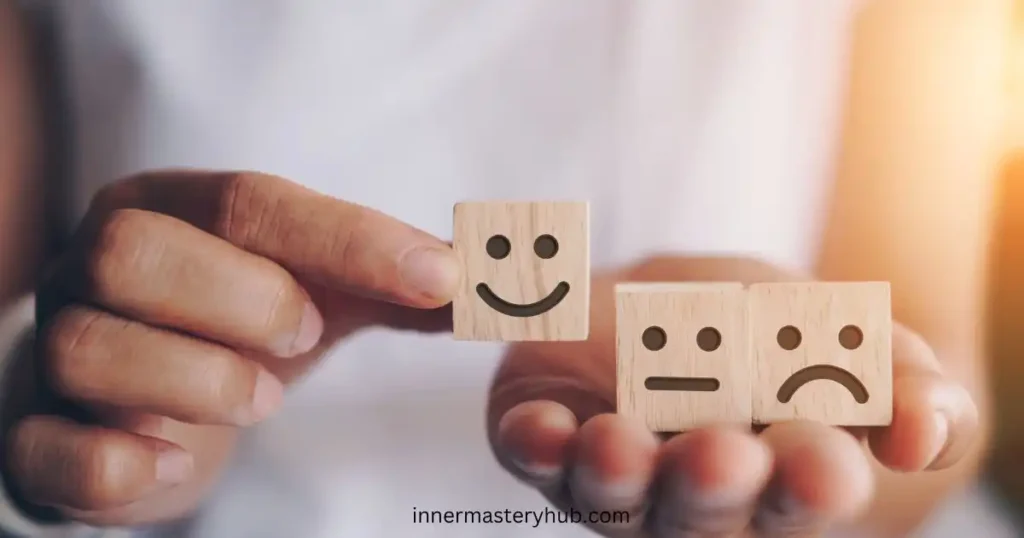
12 Signs of Emotional Dissonance in Relationships
Here are some common signs:
Saying “I’m fine” when you’re clearly upset
You brush off a fight or hurt with a quick “It’s okay” or “No big deal,” but your tense face or silent treatment shows otherwise. This hides genuine emotions, leaving your partner to guess and build resentment over time.
Laughing off serious conversations
When talking about deep issues like trust or plans, you crack jokes or change the subject to lighten the mood. It avoids the hard stuff, but it signals you’re not ready to connect on a fundamental emotional level.
Over-apologising for small things
You say “sorry” a ton for tiny mistakes, like spilling coffee, even when it’s not your fault. This comes from inner guilt or fear of conflict, making interactions feel forced and unequal.
Feeling drained after positive interactions
You just had a fun date or a loving chat, but afterwards, you feel exhausted or empty, not happy. It’s like your body knows the “good” moment isn’t entirely genuine, and it drains your emotional energy.
Avoiding eye contact during vulnerable talks
When sharing feelings or hearing your partner’s, you look away, fiddle with your phone, or stare at the floor. This blocks true intimacy, turning open moments into awkward dodges.
Mixed signals in affection
One day you’re all hugs and sweet texts, the next you’re distant and cold without explanation. It confuses your partner, making them question if your love is steady or just a mood swing.
Suppressing tears or anger in arguments
During a heated discussion, you bite your lip to hold back crying or clench your fists to stay “calm.” Bottling up like this protects your ego in the short term, but later explodes, worsening the disconnect.
Faking enthusiasm for shared activities
Your partner plans a hike or movie night you “love,” but you’re secretly bored or dreading it, forcing smiles the whole time. This pretend joy erodes trust when the truth slips out.
Resenting compliments or praise
When they say, “You did great!” you brush it off with “It was nothing” or feel annoyed inside. It stems from low self-worth, which blocks you from fully receiving love and makes the relationship one-sided.
What is an example of emotional dissonance in a relationship?
An example of emotional dissonance in a relationship is pretending to be happy when you feel hurt or upset. You smile and seem fine, but inside you feel angry, sad, or disconnected, which creates tension and misunderstanding between partners.
Physical touch feels uncomfortable.
A hug or hand-hold that should feel warm instead makes you tense up or pull away subtly; your body rebels against the emotional closeness, hinting at unresolved fears or past hurts.
Over-explaining emotions instead of feeling them
You analyse why you’re sad (“It’s because of work stress and…rather than just saying ‘I feel down.” This intellectualises pain, keeping it at arm’s length and preventing genuine empathy from your partner.
Relief when alone after being together
Spending time with them is “nice,” but you sigh in relief when they’re gone, craving space more than connection. It shows the Relational emotional fit is off, like wearing shoes that pinch.
How to Deal with Relational Emotional Dissonance
It doesn’t have to be too much to handle; begin by recognising these symptoms without passing judgment on yourself, then take a moment to identify your true feelings aloud, such as “I’m hurt but acting okay.” “Hey, I’m struggling to show how I feel—can we talk slower?” is a gentle way to express this to your partner.
To align your inner and outer worlds, try grounding techniques like taking deep breaths or going for a short walk, as well as basic check-ins, such as evaluating your mood after conversations on a scale of 1 to 10. A therapist will help dissect the roots if it’s challenging to do so alone, shifting ambiguity into stronger, more certain relationships that feel effortless and genuine.
FAQS About Emotional Dissonance in Relationships
What is emotional dissonance in relationships?
Fake smiles during a disagreement are an example of emotional dissonance in relationships, which happens when your actual feelings and the emotions you feel compelled to express to your partner differ. It is caused by unfulfilled expectations or fear of rejection, leading to exhaustion and alienation. Early detection enables candid conversations to realign honesty and restore intimacy.
What are the signs of emotional dissonance in a relationship?
Constant exhaustion after contact, feigned joy, sarcastic outbursts of repressed rage, guilt about expressing emotions, and inappropriate love, such as forced hugs, are all warning signs. Other warning signs include excessive apologies, emotional numbness, public idealisation, stress, avoiding in-depth conversations, long-term identity loss, and envy of others’ genuineness.
What causes emotional dissonance in relationships?
Common causes include unrecognised expectations, conflict aversion, different emotional needs, or traumatic experiences that make vulnerability frightening. Both the dominance of one partner’s emotional expression and social pressures for “perfect” partnerships intensify it. Unbalanced relationships eventually develop a performative dynamic that limits sincere connection.
How does emotional dissonance in relationships affect people’s lives?
It turns conversations into exhausting acts and creates bitterness, emotional tiredness, and interpersonal loss. Withdrawal by partners can result in numbness or passive-aggression, which deepens rifts and increases the likelihood of a separation. It causes physical stress, such as sleeplessness; if left unchecked, it destroys mutual progress and trust over time.
How can I overcome emotional dissonance in relationships?
Begin by being conscious of your own feelings that don’t match your journal. Use “I feel” words to communicate honestly and without assigning blame. Set boundaries for authenticity by, for example, planning vulnerability check-ins. Couples counselling facilitates root exploration. To create an environment where both parties may remove their masks and establish a deep connection, engage in empathy exercises.
Is Relational Emotional Dissonance the same as emotional labour?
Not quite, dissonance in relationships is the internal struggle that arises from pretending to feel something to satisfy a partner’s demands. In contrast, emotional labour is the effort to control emotions for a role (e.g., smiling at work). Both are exhausting, but relational dissonance has a greater impact on intimacy and can lead to resentment if it is one-sided.
Can Relational emotional dissonance lead to a breakup?
Keep an eye out for signs of exhaustion following intimacy, forced optimism, sighs of indirect rage, or a hesitation to share deeply. They can display signs of stress, overapologize excessively, or idealise others in public while withdrawing in private. Ask them gently about their innermost thoughts and feelings; empathy allows for conversation without accusation.
How do I know if my partner experiences emotional dissonance in a relationship?
Keep an eye out for signs of exhaustion following intimacy, forced optimism, sighs of indirect rage, or a hesitation to share deeply. They can display signs of stress, overapologize excessively, or idealise others in public while withdrawing in private. Ask them gently about their innermost thoughts and feelings; empathy allows for conversation without accusation.
What role does communication play in emotional dissonance in relationships?
Communication matters because it reduces repression by bridging the gap between felt and displayed emotions. Sincere “I feel unheard” conversations affirm experiences and avoid accumulation. Exercises in empathy and active listening align expressions, transforming discord into harmony. Mismatches flourish in solitude without it.
Are there books or resources for emotional dissonance in relationships?
Yes, try John Gottman’s “The Seven Principles for Making Marriage Work” for communication techniques or Sue Johnson’s “Hold Me Tight” for attachment insights. Online: TED Talks about emotional authenticity or articles.
Causes of emotional dissonance in relationships
Causes of emotional dissonance in relationships include: feeling pressured to hide true emotions, fear of conflict or rejection, mismatched expectations between partners, unresolved past trauma, lack of communication, and trying to meet social or personal roles instead of expressing genuine feelings.

